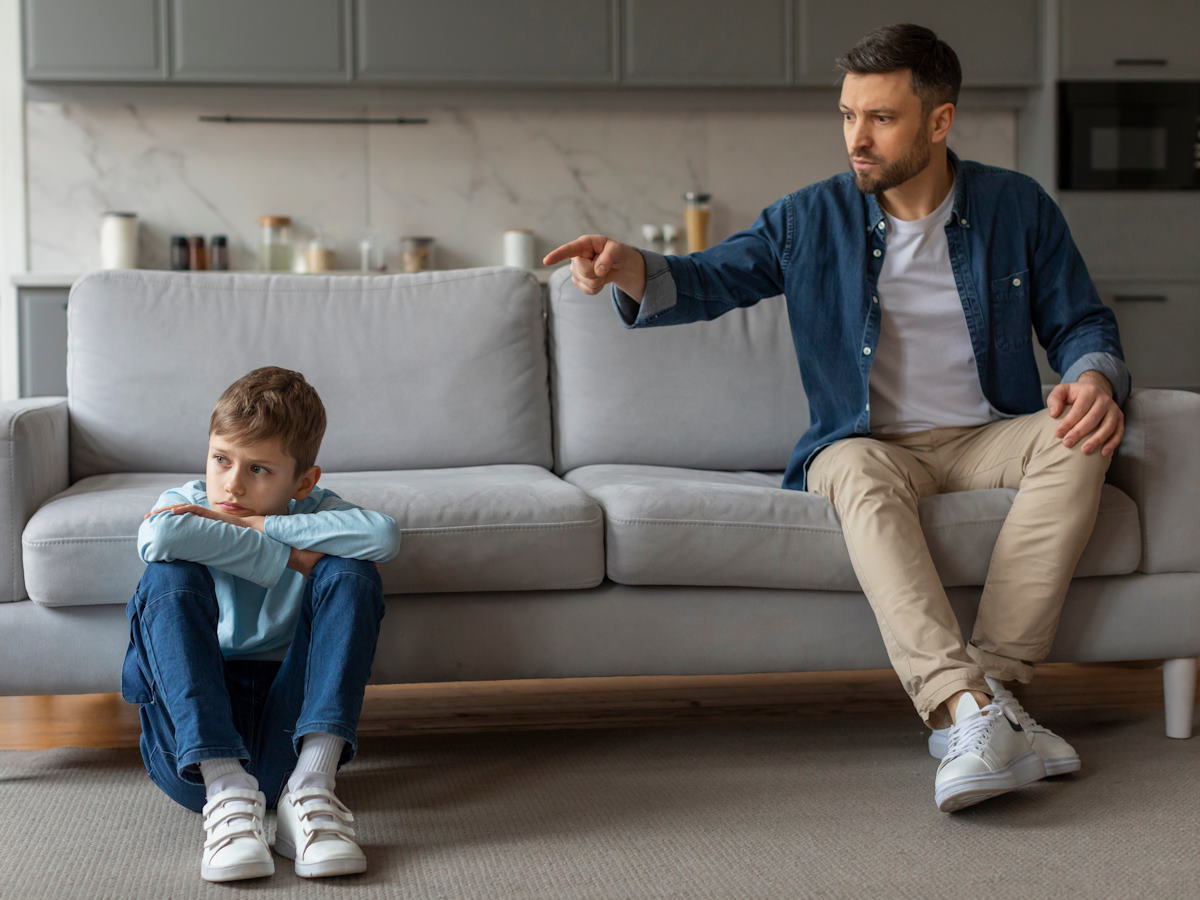Quick Summary
Childhood trauma can have lasting effects on men’s mental health and may benefit from specialized treatment approaches that address both past experiences and current symptoms.
Mental health treatment for men often includes trauma-informed care that recognizes how early adverse experiences can influence emotional regulation, relationships, and coping patterns.
Professional support is available to help men process childhood trauma and build resilience.
Key Takeaways
- Childhood trauma can affect men’s mental health into adulthood and may influence emotional regulation and relationship patterns.
- Trauma-informed mental health treatment recognizes the connection between early adverse experiences and current mental health challenges.
- Specialized treatment approaches for men can address both the symptoms and underlying trauma contributing to mental health concerns.
- Professional mental health support offers tools and strategies to help men process past trauma and develop healthier coping mechanisms.
Childhood trauma is a detrimental force that can shape a man’s mental, emotional, and physical health and impact him well into adulthood. Experiences like neglect, abuse, or exposure to violence during crucial developmental years leave deep scars that resurface in various areas throughout a man’s life. Although the effects of childhood trauma are not linked to a specific gender, the societal expectations and norms surrounding masculinity create unique challenges for men trying to process trauma.
Men tend to keep their experiences to themselves and struggle with the impact of childhood trauma in silence. The profound effects of these events leave men feeling isolated, unheard, and misunderstood as they get older. Untreated trauma causes many other symptoms later in life such as anger, relationship difficulties, substance abuse, and other mental health challenges.
Despite the prevalence of childhood trauma among men, there is a notable gap between awareness, recognition, and intentional treatment approaches. This gap is often due to societal expectations that men must be self-sufficient, keep their emotions in check, and remain unshaken during difficult times. These harmful ideas hold men back from seeking the help they desperately need to work through the effects of childhood trauma so they can build enjoyable, fulfilling lives as adults.
Continue reading to learn how childhood trauma uniquely affects men’s mental health and the barriers they face when trying to get help. Thankfully, there are treatment programs dedicated to providing men with the individualized and gender-specific strategies they need to heal from these formative experiences and thrive in their lives.
What is Childhood Trauma?
Childhood trauma, also called adverse childhood experiences (ACEs), are preventable, potentially traumatic events that occur among children and adolescents younger than 18 years old. Childhood trauma is unfortunately common and can affect any child regardless of age, gender, or demographic. Approximately two-thirds of children report at least one ACE during their lives and one in six reported four or more ACEs.
While childhood trauma can affect any child, disparities are usually attributable to certain social and economic environments. Children who grow up in underserved communities or in families who are in poverty are more likely to experience childhood trauma than their peers. Studies show that experiencing four or more ACEs is most common among:
- Females (19.2%)
- Adults ages 25-34 years (25.2%)
- Non-Hispanic American Indian or Alaskan Native adults (32.4%)
- Non-Hispanic multiracial adults (31.5%)
- Adults with less than a high school education (20.5%)
- Adults who are unemployed (25.8%) or unable to work (28.8%)
Childhood trauma has a significant negative impact on children as they grow up. Providing adults with understanding and effective treatment services is a vital intervention that can change their lives and give them a better chance to succeed.
Common Types of Childhood Trauma
Childhood trauma, or ACEs, encompasses a variety of harmful experiences that children endure. What are some common examples of childhood trauma that children experience?
- Physical, emotional, and sexual abuse
- Neglect and abandonment
- Exposure to domestic violence or addiction in the family
- Loss of a parent or other significant relationships
- Community or school violence
- National disasters or terrorism
- Commercial sexual exploitation
- Refugee or war experiences
- Physical or sexual assault
- Military family-related stressors (i.e. deployment, parental injury or loss)
- Serious accidents
- Life-threatening illness
Some children experience only one type of childhood trauma and, while it may have some effects, still grow into healthy, well-adjusted adults. Children who experience multiple ACEs, however, are more likely to experience adverse effects that last well into adulthood, especially when they go untreated.
Signs and Symptoms of Unresolved Childhood Trauma
Unresolved and untreated childhood trauma has an impact that lasts well into adulthood. It manifests in a wide range of symptoms that intensify as the child grows up. Recognizing these signs is crucial to ensure that those who need help and support receive it. What are some of the signs and symptoms of unresolved childhood trauma?
Emotional Symptoms
- Emotional numbness or avoidance of emotions
- Heightened stress responses
- Impulsivity or increased risk-taking behavior
- Chronic feelings of guilt, shame, or inadequacy
- Mental health disorders (i.e. depression, anxiety, post-traumatic stress disorder)
- Struggles with addiction, anger management, or violent behavior
- Self-harm, suicidal ideation, or suicide attempts
Cognitive Symptoms
- Flashbacks, nightmares, or anxiety related to past experiences
- Difficulty focusing or concentrating
- Memory problems, especially when it comes to childhood
- Negative self-talk
- Distorted beliefs about oneself or the world
Physical Symptoms
- Difficulty sleeping (i.e. sleeping too much, not sleeping enough, sleep disturbances)
- Chronic fatigue or low energy
- Heightened startle response
- Unexplained aches, pains, or other physical ailments
Other Symptoms
- Trust issues
- Difficulty forming or maintaining relationships
- Attachment problems
- Tantrums or emotional outbursts
- Difficulty setting or respecting boundaries
- Overly independent and isolated from others or overly dependent on others
The signs and symptoms of childhood trauma vary depending on the person and their experiences. Although these signs do not necessarily indicate the presence of childhood trauma, they are important signals that some unresolved issues may be at play.
Unique Effects of Childhood Trauma on Men
Childhood trauma has lasting effects on both men and women, but unreasonable societal expectations on men mean they experience some unique effects.
Emotional Suppression
Men are taught from a young age that “boys don’t cry”, leading them to suppress their emotions from the time they are young. However, when they experience adverse experiences that come with big feelings but are expected to stuff those emotions, a disconnect arises. They never learn to properly feel or process the emotions that come from childhood trauma and often turn to anger as an alternative outlet.
Higher Rates of Substance Use Disorders
Men are more likely to turn to drugs and alcohol to cope with the emotional effects of childhood trauma. They often use substances to self-medicate so they can continue handling their problems on their own, but this only exacerbates the underlying issue and creates bigger problems the longer they go untreated.
Underdiagnosis of Mental Health Issues
Men who experience childhood trauma often live with undiagnosed mental health conditions such as depression, anxiety, or post-traumatic stress disorder. Societal expectations of men mean they are less likely to ask for help which only makes these problems worse and more challenging to work through later on.
Relationship Difficulties
Childhood trauma often significantly affects a man’s ability to form and maintain healthy relationships, both platonic and romantic. They experience trust issues or fears of intimacy, difficulty or inability to express vulnerability, challenges in setting or respecting boundaries, and an increased sense of irritability or anger.
Increased Risk of Suicidality
Men are already four times more likely to die by suicide than women. When you add in unresolved childhood trauma, the likelihood of suicidal ideation or attempts increases drastically. Men are more likely to engage in risky behavior than women, too, which puts them at a greater risk of unintentional death as well.
Therapeutic Approaches for Addressing Childhood Trauma in Men
Thankfully, treatment programs are well-equipped to help men who experienced childhood trauma. The most effective programs provide trauma-informed care that understands the unique needs of childhood trauma survivors. Some of the approaches used when working with men who experienced trauma include:
- Cognitive Behavioral Therapy (CBT): One of the most widely practiced forms of evidence-based therapy which focuses on the connections between thoughts, emotions, and behaviors.
- Dialectical Behavioral Therapy (DBT): Another common evidence-based approach that helps men build emotional resilience and improve relationships to enhance their overall well-being.
- Eye Movement Desensitization and Reprocessing (EMDR): This trauma-specific therapy is used to help men reprocess their traumatic memories to reduce their emotional impact in the present.
- Group therapy: Group therapy is especially important for men who experience trauma because it provides a safe, supportive environment to work through the unique difficulties that arise from childhood trauma.
- Holistic approaches (i.e. mindfulness, meditation, somatic experiencing)
How Into The Light Helps Men Heal from Childhood Trauma
Into the Light is a mental health treatment program that provides trauma-informed care to men in Redlands, CA, and the surrounding area. Our gender-specific services ensure that men receive the individualized support and care they need to work through and heal from the experiences that made them who they are today. Overcoming childhood trauma is a vital part of building a healthy, happy, and fulfilling life, and Into the Light is here to help.
We understand how difficult it is for men to drop their walls and reach out for help. It isn’t easy to be vulnerable, especially when you already feel so low. However, our care team at Into the Light is specially equipped to work with men who are at their lowest and see no way through. We’re here to walk alongside you every step of the way and show you that you are far from alone in your experiences.
Our safe, non-judgmental environment allows you to open up and honestly confront your past among a group of your peers who understand and are here for you, too. To learn more about the programs available at Into the Light, call us at (877) 446-8685 or submit an online contact form today. You never have to handle your symptoms alone again; you have a group ready and waiting to help you through your journey to a better life.


